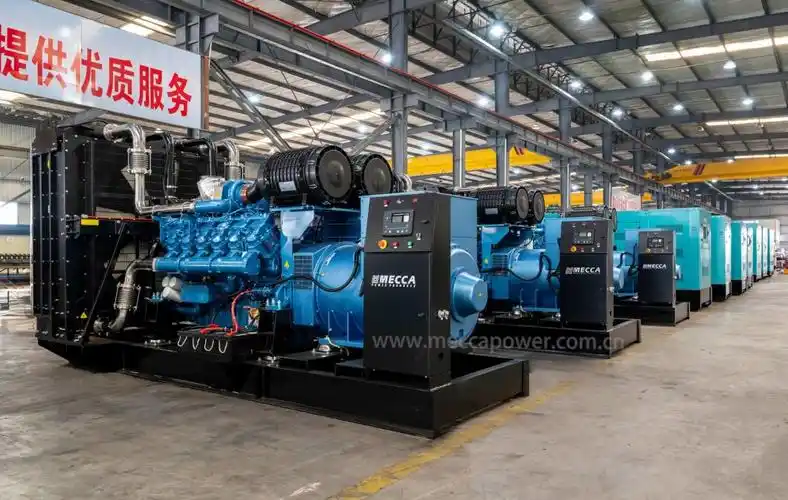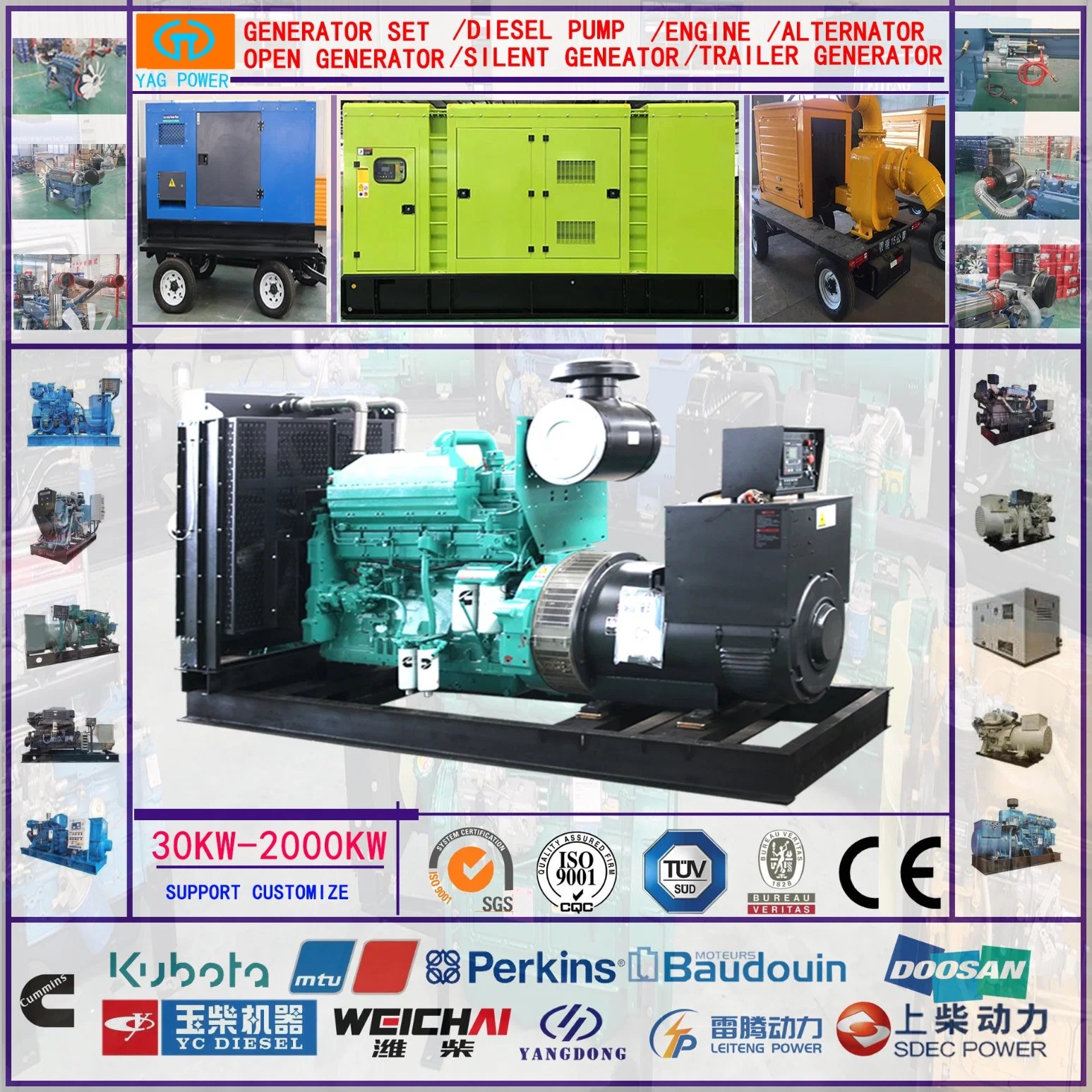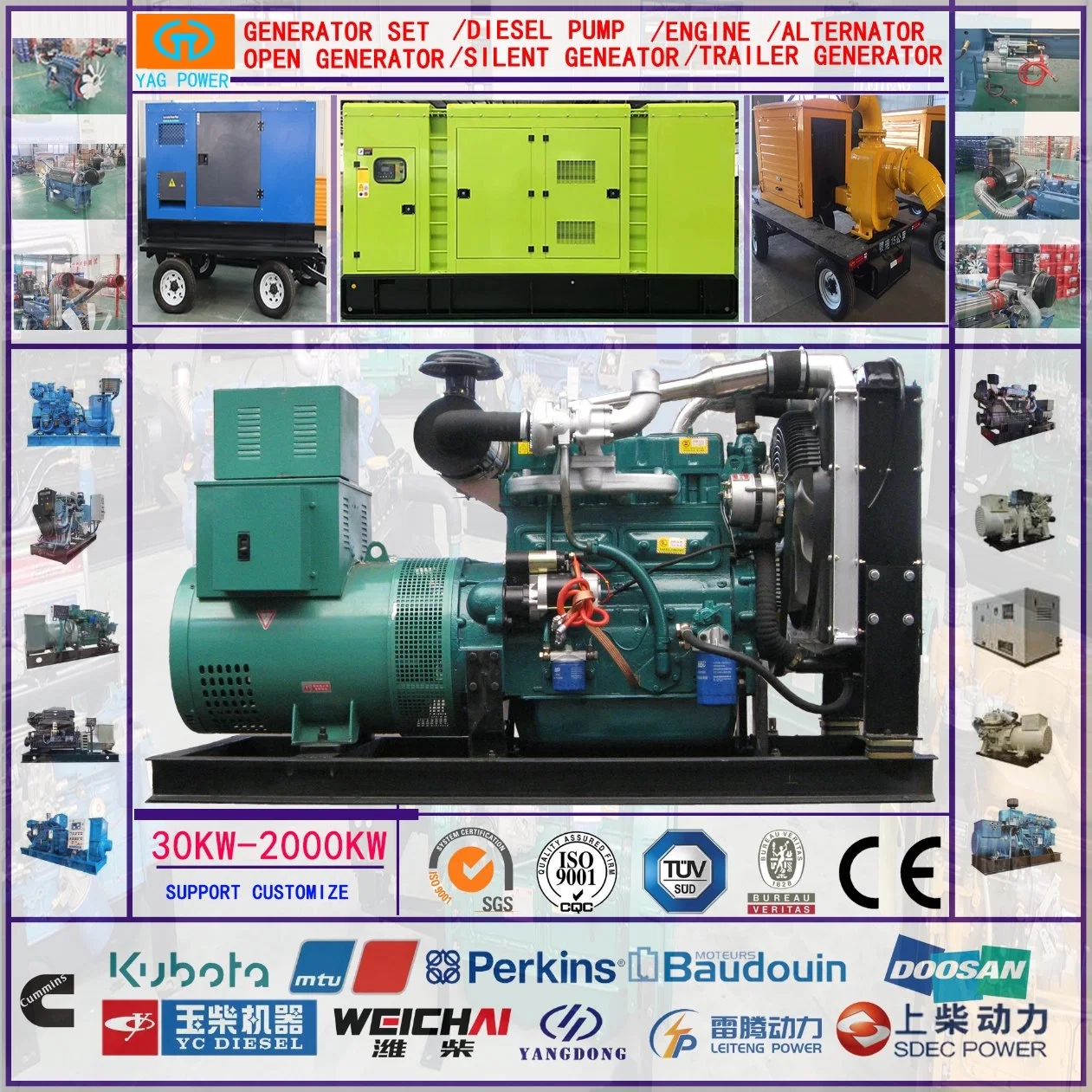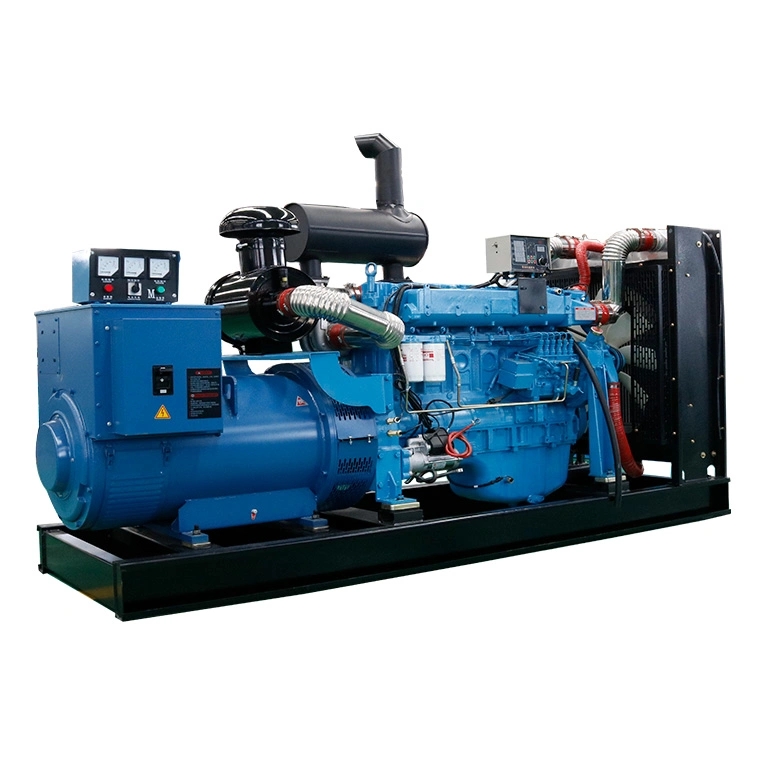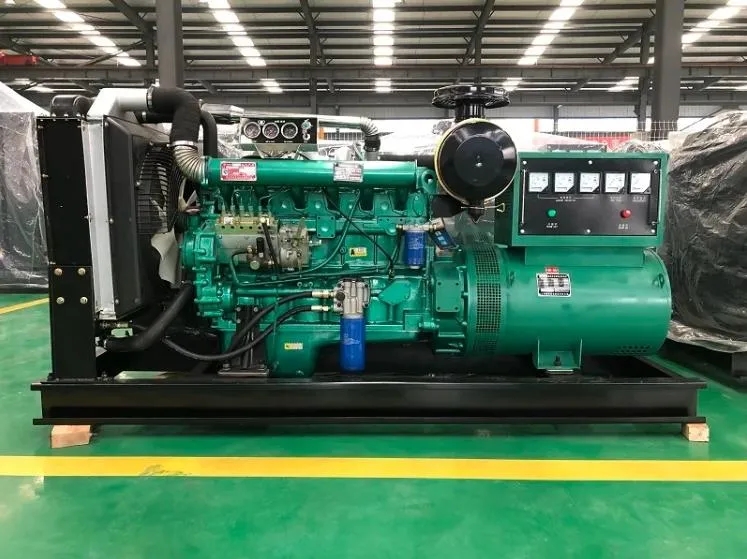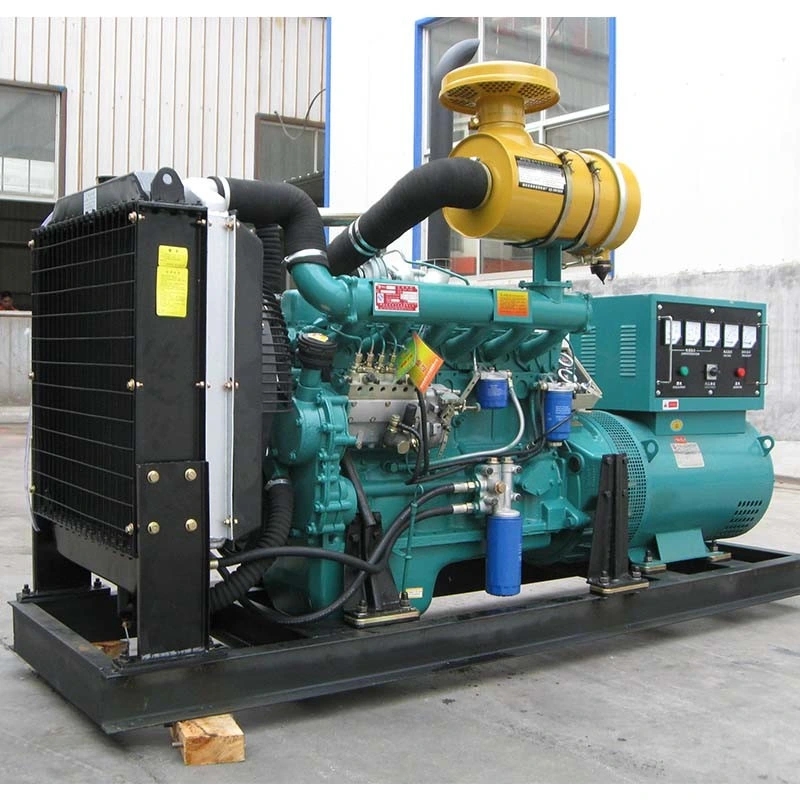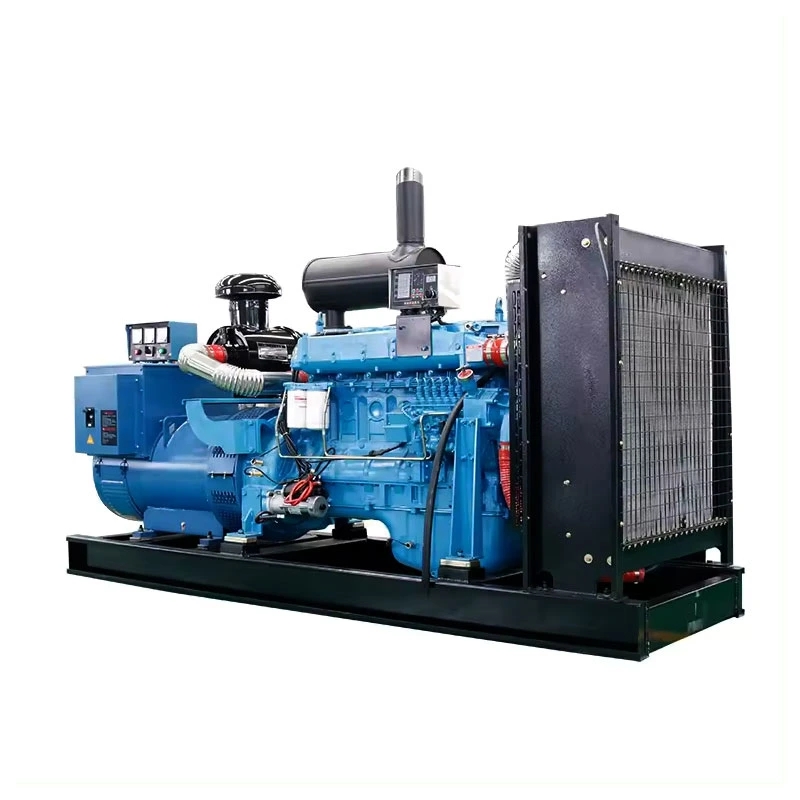Table of Contents
Toggle
Introduction to Diesel Generators
Hey there! Ever wondered how big industries, commercial setups, or even some households manage to keep the lights on during power outages? Enter the diesel generator – the unsung hero of uninterrupted power supply. And if you’re particularly curious about the 75kW diesel generator, you’re in for a treat. Let’s dive into this topic and see why this specific generator size is such a big deal.
What is a 75kW Diesel Generator?
Basic Definition and Functionality
Alright, let’s break it down. A 75kW diesel generator is a machine that converts diesel fuel into electrical energy. It’s like having your mini power plant! The “75kW” part indicates that it can produce up to 75 kilowatts of power. That’s enough juice to keep medium-sized facilities running smoothly. These generators are often used as backup power sources in case of main grid failures but can also serve as the primary power source in remote locations where electricity is not readily available.
The core functionality of a diesel generator revolves around its internal combustion engine, which burns diesel fuel to create mechanical energy. This mechanical energy then drives an alternator, which converts it into electrical energy. The process is efficient and reliable, making diesel generators a popular choice for a variety of applications.
Key Specifications
When we talk about key specs, think about engine size, fuel consumption, and noise levels. These generators typically feature robust engines, often with turbochargers for added efficiency. Turbocharging helps in improving the power output and efficiency by forcing more air into the combustion chamber, allowing for better fuel combustion.
Fuel consumption varies depending on the load. At full load, a 75kW diesel generator might consume around 18-20 liters of diesel per hour. However, at lower loads, fuel consumption decreases proportionally, making these generators quite efficient for varied usage scenarios.
Noise levels are another important consideration. Modern 75kW diesel generators come equipped with soundproof enclosures or mufflers that significantly reduce noise levels. This makes them suitable for use in residential areas or places where noise pollution needs to be minimized.
Benefits of Using a 75kW Diesel Generator
Reliability and Durability
Diesel generators are built like tanks. Seriously, they’re designed to withstand tough conditions and operate for long hours without breaking a sweat. This reliability makes them perfect for critical applications where power continuity is non-negotiable. Unlike other types of generators that might falter under continuous operation, diesel generators are known for their robustness and ability to run for extended periods without significant wear and tear.
The durability of these generators can be attributed to their construction and the materials used. High-quality components and advanced engineering ensure that they can handle heavy loads and harsh environments. This makes them ideal for industrial applications where reliability is paramount.
Cost-Efficiency
While the initial cost might make you blink twice, think long-term. Diesel fuel is relatively cheaper and more energy-dense than other fuels. Plus, these generators have lower operational costs due to their efficiency and longer lifespan. The higher energy density of diesel means that you get more power output per unit of fuel compared to gasoline or natural gas.
Additionally, diesel engines are more fuel-efficient, especially under heavy loads. This translates to lower fuel costs over the lifetime of the generator. When you factor in the longer lifespan and reduced maintenance requirements, the total cost of ownership becomes quite favorable.
Environmental Impact
Now, I know what you’re thinking – aren’t diesel engines bad for the environment? Well, advancements in technology have led to cleaner-burning engines that produce fewer emissions. Plus, many models now comply with stringent environmental regulations. Modern diesel engines are equipped with advanced emission control technologies such as catalytic converters and particulate filters that reduce harmful emissions.
Moreover, the efficiency of diesel engines means that less fuel is burned to produce the same amount of power, resulting in lower carbon dioxide (CO2) emissions per unit of electricity generated. While no fossil fuel can be considered completely green, diesel has made significant strides in reducing its environmental footprint.
Applications of a 75kW Diesel Generator
Industrial Use
In industries, power outages can spell disaster. A 75kW diesel generator can power essential machinery, ensuring production lines keep moving and preventing costly downtime. Industries such as manufacturing, mining, and construction rely heavily on uninterrupted power supply to maintain productivity and safety.
For example, in a manufacturing plant, a power outage can halt production lines, leading to significant financial losses. With a 75kW diesel generator, essential machinery such as conveyor belts, robotic arms, and quality control systems can continue operating seamlessly during grid failures.
Commercial Use
Think about hospitals, data centers, and shopping malls. These places need a steady power supply to operate effectively. A 75kW generator can keep critical systems online, safeguarding everything from patient care to data integrity. In hospitals, uninterrupted power is crucial for life-saving equipment such as ventilators, surgical lights, and monitoring systems.
Data centers house servers that store vast amounts of data and run critical applications. Any downtime can result in data loss or service disruptions. A 75kW diesel generator ensures that these servers remain operational during power outages, protecting data integrity and minimizing service interruptions.
Residential Use
Yes, even some homes use these generators! Especially in areas prone to natural disasters or remote locations where power grids are unreliable. A 75kW unit can handle multiple household appliances and systems with ease. For instance, during a hurricane or severe storm, a residential 75kW diesel generator can power essential household items such as refrigerators, heating or cooling systems, lighting, and medical equipment.
In remote locations where access to the main power grid is limited or non-existent, a 75kW diesel generator can serve as the primary power source. It provides reliable electricity for daily activities and ensures that modern conveniences are available even in off-grid settings.
Key Components of a 75kW Diesel Generator
Engine
The heart of the generator. The engine burns diesel fuel to create mechanical energy, which is then converted into electricity. It’s built for efficiency and durability. The engine typically consists of several key components including cylinders, pistons, crankshaft, and valves. These components work together in a precise sequence to convert the chemical energy in diesel fuel into mechanical energy.
High-quality engines are designed with advanced materials and engineering techniques to withstand high temperatures and pressures during combustion. This ensures long-term reliability and minimal wear and tear.
Alternator
This component converts the mechanical energy from the engine into electrical energy. It’s like the magic wand that makes electricity happen. The alternator consists of a rotor (which spins) and a stator (which remains stationary). As the rotor spins within the stator’s magnetic field, it induces an electrical current in the stator windings.
The alternator’s efficiency is crucial for the overall performance of the generator. High-quality alternators are designed to minimize energy losses during the conversion process, ensuring maximum electrical output.
Control Panel
The brain of the operation. It manages and monitors the generator’s functions, ensuring everything runs smoothly and safely. The control panel displays important information such as voltage output, frequency, engine temperature, oil pressure, and fuel level.
Advanced control panels also include features like automatic start/stop functions, fault diagnostics, and remote monitoring capabilities. These features enhance the user experience and provide valuable insights into the generator’s performance.
Fuel System
This includes the fuel tank, fuel pump, and injectors. It’s responsible for delivering diesel to the engine efficiently. The fuel system ensures that a precise amount of diesel is injected into the combustion chamber at the right time for optimal combustion.
A well-designed fuel system minimizes fuel wastage and ensures consistent performance even under varying load conditions. Regular maintenance of the fuel system components is essential to prevent issues such as clogged injectors or fuel leaks.
How to Choose the Right 75kW Diesel Generator
Choosing the right 75kW diesel generator involves more than just picking the first one you come across. It requires careful consideration of various factors to ensure you get the best value for your money and the most suitable generator for your needs.
Power Requirements
First things first – figure out how much power you actually need. Too little, and you’ll be left in the dark. Too much, and you’ll be wasting resources. Start by listing all the appliances, equipment, and systems you need to power. Calculate their total wattage and add a buffer (typically 20-30%) to account for any future needs or unexpected surges in power demand.
For instance, in a commercial setting like a data center, you might need to power servers, cooling systems, and security systems. Each of these has specific power requirements that need to be factored into your overall calculation. Similarly, in an industrial setting, you might need to power heavy machinery, lighting, and control systems.
Budget Considerations
Don’t just look at the purchase price. Consider operating costs, maintenance, and potential repairs. Sometimes spending a bit more upfront saves you a lot in the long run. A higher-quality generator from a reputable brand might have a higher initial cost but could offer better fuel efficiency, lower maintenance costs, and a longer lifespan.
When budgeting, also consider the cost of installation, any additional accessories you might need (such as transfer switches or soundproof enclosures), and the cost of fuel over the generator’s lifetime. Performing a total cost of ownership (TCO) analysis can provide a clearer picture of the long-term financial impact.
Brand Reputation
Go for trusted brands with good reviews. A reputable brand usually means better customer support and reliable products. Brands like Caterpillar, Cummins, and Generac are well-known in the industry for their high-quality generators and excellent customer service.
Look for reviews and testimonials from other users who have similar power needs. This can give you insights into the real-world performance and reliability of different models. Additionally, consider the availability of spare parts and service centers in your area – this can make maintenance and repairs much easier.
Installation and Maintenance Tips
Proper installation and regular maintenance are crucial for ensuring your 75kW diesel generator operates efficiently and reliably over its lifespan.
Proper Installation Steps
Make sure your generator is installed by professionals. They’ll ensure it’s set up correctly, minimizing risks and maximizing efficiency. The installation process typically involves several key steps:
- Site Assessment: Evaluate the location where the generator will be installed. Ensure it’s well-ventilated, accessible for maintenance, and away from flammable materials.
- Foundation Preparation: Install a concrete pad or other suitable foundation to support the generator’s weight and reduce vibrations.
- Electrical Connections: Connect the generator to your electrical system using appropriate wiring and transfer switches. This ensures seamless switching between grid power and generator power during outages.
- Fuel System Setup: Install fuel lines, tanks, and pumps as needed. Ensure all connections are secure and leak-free.
- Testing: Once installed, perform thorough testing to ensure everything is functioning correctly. This includes checking voltage output, frequency stability, and automatic start/stop functions.
Regular Maintenance Checks
Like any machine, regular maintenance is key. Check oil levels, inspect filters, and keep an eye on wear and tear. A little TLC goes a long way in extending your generator’s lifespan. Here are some essential maintenance tasks:
- Oil Changes: Regularly change the engine oil according to the manufacturer’s recommendations. Clean oil ensures smooth operation and reduces wear on engine components.
- Filter Replacements: Replace air, fuel, and oil filters at regular intervals. Clean filters prevent contaminants from entering the engine and fuel system.
- Battery Inspection: Check the battery regularly to ensure it’s charged and free from corrosion. A weak or dead battery can prevent your generator from starting.
- Coolant Levels: Monitor coolant levels and top up as needed. Proper cooling is essential to prevent overheating during extended operation.
- Exhaust System Check: Inspect the exhaust system for leaks or blockages. Ensure that exhaust gases are being safely vented away from the generator.
Troubleshooting Common Issues
Even with regular maintenance, issues can arise. Knowing how to troubleshoot common problems can save you time and money.
Starting Problems
If your generator won’t start, it could be due to a flat battery or a clogged fuel filter. Check these first before calling in the cavalry. Other potential causes include low oil levels (some generators have a low-oil shutoff feature) or faulty spark plugs.
Ensure that all connections are secure and that there is sufficient fuel in the tank. If the problem persists, consult your user manual or contact a professional technician for further diagnosis.
Fuel System Issues
Issues here can cause your generator to sputter or run inefficiently. Regularly check for leaks and ensure the fuel is clean. Contaminated fuel can cause blockages in injectors or damage other components of the fuel system.
If you notice any signs of fuel system problems (such as black smoke from the exhaust or irregular engine performance), perform a thorough inspection of fuel lines, filters, and injectors. Replace any damaged or worn components as needed.
Electrical Faults
Sometimes the problem lies in the wiring or control panel. Regular inspections can catch these issues early before they become big headaches. Check for loose connections, damaged wires, or blown fuses.
If your generator is producing inconsistent voltage or frequency, it could indicate an issue with the alternator or control panel settings. Consult your user manual for troubleshooting steps or seek assistance from a qualified electrician.
Cost Analysis of a 75kW Diesel Generator
Understanding the costs associated with owning and operating a 75kW diesel generator can help you make informed decisions.
Initial Purchase Cost
This can vary widely depending on brand and features. Generally, you’re looking at a significant investment, but remember – quality costs. The initial purchase price can range from $20,000 to $50,000 or more depending on factors such as brand reputation, included features (like soundproof enclosures or advanced control panels), and additional accessories.
While it might be tempting to go for a cheaper model, investing in a high-quality generator from a reputable brand can save you money in the long run through lower maintenance costs and improved reliability.
Operating Costs
Diesel isn’t free, but it’s cost-effective compared to other fuels. Factor in fuel consumption rates when budgeting for operational costs. At full load, a 75kW diesel generator might consume around 18-20 liters of diesel per hour.
To calculate operating costs, estimate your expected usage hours per year and multiply by the fuel consumption rate and current diesel prices. Don’t forget to factor in additional costs such as oil changes, filter replacements, and periodic inspections.
Maintenance Costs
Regular maintenance will incur costs, but it’s cheaper than major repairs or replacements down the line. Maintenance costs include routine tasks such as oil changes (typically every 200-300 hours of operation), filter replacements (air, fuel, oil), coolant top-ups, battery inspections/replacements, and general wear-and-tear repairs.
Budgeting for regular maintenance helps prevent unexpected breakdowns and extends your generator’s lifespan.
Frequently Asked Questions (FAQs)
A section dedicated to answering common questions can provide clarity on various aspects of owning and operating a 75kW diesel generator.
General Queries
What’s the lifespan of a 75kW diesel generator? Typically around 20-30 years with proper maintenance. The actual lifespan depends on factors such as usage patterns (continuous vs intermittent operation), load conditions (consistent vs fluctuating loads), and adherence to maintenance schedules.
Can I use biodiesel in my diesel generator? Many modern diesel generators are compatible with biodiesel blends (typically up to B20). Biodiesel is a renewable fuel made from vegetable oils or animal fats that can reduce carbon emissions compared to traditional diesel fuel.
How often should I run my generator? It’s recommended to run your generator at least once a month for 30 minutes under load conditions (using connected appliances/equipment). This helps keep internal components lubricated and ensures reliable startup during emergencies.
Technical Queries
Can I run my generator continuously? Most are designed for continuous operation but check your model’s specifications for any limitations regarding maximum runtime without breaks.
What is load shedding? Load shedding refers to temporarily reducing non-essential loads during peak demand periods or when backup power capacity is limited due to grid failures/outages/load management purposes.
How do I size my transfer switch? Transfer switches should be sized based on total connected load requirements plus additional capacity buffer (~20-30%) for future expansion/surge protection purposes.
Conclusion
So there you have it – a comprehensive guide to the 75kW diesel generator! From its robust reliability to its wide range of applications across different sectors (industrial/commercial/residential), it’s clear why this piece of machinery remains popular among various users seeking dependable backup/primary power solutions during grid failures/outages/load management scenarios worldwide today!
Whether you’re considering one for industrial use (to keep production lines running smoothly) or just want peace-of-mind at home (during natural disasters/remote locations), understanding its ins-and-outs will help make informed decisions about choosing/installing/maintaining/troubleshooting/cost-analyzing/frequently-asked-questions regarding these versatile machines effectively!
How to Choose the Right 75kW Diesel Generator
Choosing the right 75kW diesel generator involves more than just picking the first one you come across. It requires careful consideration of various factors to ensure you get the best value for your money and the most suitable generator for your needs.
Power Requirements
First things first – figure out how much power you actually need. Too little, and you’ll be left in the dark. Too much, and you’ll be wasting resources. Start by listing all the appliances, equipment, and systems you need to power. Calculate their total wattage and add a buffer (typically 20-30%) to account for any future needs or unexpected surges in power demand.
For instance, in a commercial setting like a data center, you might need to power servers, cooling systems, and security systems. Each of these has specific power requirements that need to be factored into your overall calculation. Similarly, in an industrial setting, you might need to power heavy machinery, lighting, and control systems.
Budget Considerations
Don’t just look at the purchase price. Consider operating costs, maintenance, and potential repairs. Sometimes spending a bit more upfront saves you a lot in the long run. A higher-quality generator from a reputable brand might have a higher initial cost but could offer better fuel efficiency, lower maintenance costs, and a longer lifespan.
When budgeting, also consider the cost of installation, any additional accessories you might need (such as transfer switches or soundproof enclosures), and the cost of fuel over the generator’s lifetime. Performing a total cost of ownership (TCO) analysis can provide a clearer picture of the long-term financial impact.
Brand Reputation
Go for trusted brands with good reviews. A reputable brand usually means better customer support and reliable products. Brands like Caterpillar, Cummins, and Generac are well-known in the industry for their high-quality generators and excellent customer service.
Look for reviews and testimonials from other users who have similar power needs. This can give you insights into the real-world performance and reliability of different models. Additionally, consider the availability of spare parts and service centers in your area – this can make maintenance and repairs much easier.
Installation and Maintenance Tips
Proper installation and regular maintenance are crucial for ensuring your 75kW diesel generator operates efficiently and reliably over its lifespan.
Proper Installation Steps
Make sure your generator is installed by professionals. They’ll ensure it’s set up correctly, minimizing risks and maximizing efficiency. The installation process typically involves several key steps:
- Site Assessment: Evaluate the location where the generator will be installed. Ensure it’s well-ventilated, accessible for maintenance, and away from flammable materials.
- Foundation Preparation: Install a concrete pad or other suitable foundation to support the generator’s weight and reduce vibrations.
- Electrical Connections: Connect the generator to your electrical system using appropriate wiring and transfer switches. This ensures seamless switching between grid power and generator power during outages.
- Fuel System Setup: Install fuel lines, tanks, and pumps as needed. Ensure all connections are secure and leak-free.
- Testing: Once installed, perform thorough testing to ensure everything is functioning correctly. This includes checking voltage output, frequency stability, and automatic start/stop functions.
Regular Maintenance Checks
Like any machine, regular maintenance is key. Check oil levels, inspect filters, and keep an eye on wear and tear. A little TLC goes a long way in extending your generator’s lifespan. Here are some essential maintenance tasks:
- Oil Changes: Regularly change the engine oil according to the manufacturer’s recommendations. Clean oil ensures smooth operation and reduces wear on engine components.
- Filter Replacements: Replace air, fuel, and oil filters at regular intervals. Clean filters prevent contaminants from entering the engine and fuel system.
- Battery Inspection: Check the battery regularly to ensure it’s charged and free from corrosion. A weak or dead battery can prevent your generator from starting.
- Coolant Levels: Monitor coolant levels and top up as needed. Proper cooling is essential to prevent overheating during extended operation.
- Exhaust System Check: Inspect the exhaust system for leaks or blockages. Ensure that exhaust gases are being safely vented away from the generator.
Troubleshooting Common Issues
Even with regular maintenance, issues can arise. Knowing how to troubleshoot common problems can save you time and money.
Starting Problems
If your generator won’t start, it could be due to a flat battery or a clogged fuel filter. Check these first before calling in the cavalry. Other potential causes include low oil levels (some generators have a low-oil shutoff feature) or faulty spark plugs.
Ensure that all connections are secure and that there is sufficient fuel in the tank. If the problem persists, consult your user manual or contact a professional technician for further diagnosis.
Fuel System Issues
Issues here can cause your generator to sputter or run inefficiently. Regularly check for leaks and ensure the fuel is clean. Contaminated fuel can cause blockages in injectors or damage other components of the fuel system.
If you notice any signs of fuel system problems (such as black smoke from the exhaust or irregular engine performance), perform a thorough inspection of fuel lines, filters, and injectors. Replace any damaged or worn components as needed.
Electrical Faults
Sometimes the problem lies in the wiring or control panel. Regular inspections can catch these issues early before they become big headaches. Check for loose connections, damaged wires, or blown fuses.
If your generator is producing inconsistent voltage or frequency, it could indicate an issue with the alternator or control panel settings. Consult your user manual for troubleshooting steps or seek assistance from a qualified electrician.
Cost Analysis of a 75kW Diesel Generator
Understanding the costs associated with owning and operating a 75kW diesel generator can help you make informed decisions.
Initial Purchase Cost
This can vary widely depending on brand and features. Generally, you’re looking at a significant investment, but remember – quality costs. The initial purchase price can range from $20,000 to $50,000 or more depending on factors such as brand reputation, included features (like soundproof enclosures or advanced control panels), and additional accessories.
While it might be tempting to go for a cheaper model, investing in a high-quality generator from a reputable brand can save you money in the long run through lower maintenance costs and improved reliability.
Operating Costs
Diesel isn’t free, but it’s cost-effective compared to other fuels. Factor in fuel consumption rates when budgeting for operational costs. At full load, a 75kW diesel generator might consume around 18-20 liters of diesel per hour.
To calculate operating costs, estimate your expected usage hours per year and multiply by the fuel consumption rate and current diesel prices. Don’t forget to factor in additional costs such as oil changes, filter replacements, and periodic inspections.
Maintenance Costs
Regular maintenance will incur costs, but it’s cheaper than major repairs or replacements down the line. Maintenance costs include routine tasks such as oil changes (typically every 200-300 hours of operation), filter replacements (air, fuel, oil), coolant top-ups, battery inspections/replacements, and general wear-and-tear repairs.
Budgeting for regular maintenance helps prevent unexpected breakdowns and extends your generator’s lifespan.
Frequently Asked Questions (FAQs)
A section dedicated to answering common questions can provide clarity on various aspects of owning and operating a 75kW diesel generator.
General Queries
What’s the lifespan of a 75kW diesel generator? Typically around 20-30 years with proper maintenance. The actual lifespan depends on factors such as usage patterns (continuous vs intermittent operation), load conditions (consistent vs fluctuating loads), and adherence to maintenance schedules.
Can I use biodiesel in my diesel generator? Many modern diesel generators are compatible with biodiesel blends (typically up to B20). Biodiesel is a renewable fuel made from vegetable oils or animal fats that can reduce carbon emissions compared to traditional diesel fuel.
How often should I run my generator? It’s recommended to run your generator at least once a month for 30 minutes under load conditions (using connected appliances/equipment). This helps keep internal components lubricated and ensures reliable startup during emergencies.
Technical Queries
Can I run my generator continuously? Most are designed for continuous operation but check your model’s specifications for any limitations regarding maximum runtime without breaks.
What is load shedding? Load shedding refers to temporarily reducing non-essential loads during peak demand periods or when backup power capacity is limited due to grid failures/outages/load management purposes.
How do I size my transfer switch? Transfer switches should be sized based on total connected load requirements plus additional capacity buffer (~20-30%) for future expansion/surge protection purposes.
Conclusion
So there you have it – a comprehensive guide to the 75kW diesel generator! From its robust reliability to its wide range of applications across different sectors (industrial/commercial/residential), it’s clear why this piece of machinery remains popular among various users seeking dependable backup/primary power solutions during grid failures/outages/load management scenarios worldwide today!
Whether you’re considering one for industrial use (to keep production lines running smoothly) or just want peace-of-mind at home (during natural disasters/remote locations), understanding its ins-and-outs will help make informed decisions about choosing/installing/maintaining/troubleshooting/cost-analyzing/frequently-asked-questions regarding these versatile machines effectively!




